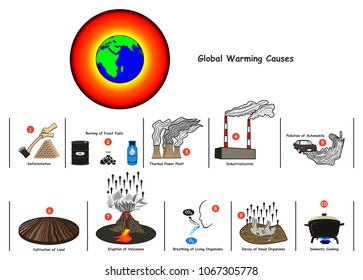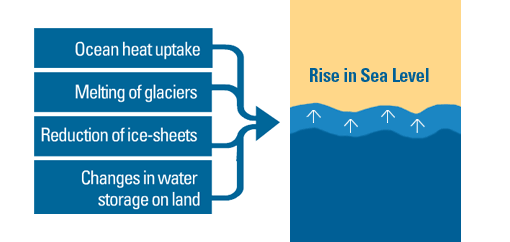
A scientific consensus is a general judgment or opinion about a matter. The best example is the consensus that Earth is warming. Human activities, including the burning of fossil fuels, have risen Earth's oceans and altered Earth's climate. However, this does not mean that all scientists agree. Some scientific groups, like the American Association of Petroleum Geologists or the National Academy of Sciences have non-committal positions. However, many elected officials disagree with the dominant view.

A new study of over 88,125 climate related studies has shown that there is a solid consensus. Although this survey is not the final answer, it does indicate that people are more inclined to believe well-researched and empirically supported assertions than those that favor one side.
The consensus rests on the fact humans have had an influence on climate since the beginning of time. This is a fact that has been borne out by the results of numerous studies conducted over the past few decades. This means that most of the current global warming can be attributed to the human race. Global warming is likely to spread as more carbon emissions are made.
The skeptics are also doing a great job of underestimating consensus. The overwhelming majority of scientists are in agreement with this view. The overwhelming evidence supports the theory that man-made climate changes are the dominant factor in Earth’s climate. Besides, it is not unimaginable that scientists might find other factors affecting our planet's temperature.
It is best to look at the research to find out the truth. NASA Global Climate Change, for example. It is a collection of citations from peer-reviewed research papers from various research groups around the globe. It highlights the quality science being conducted at NASA and shows how well it can address climate-related issues.

Another is the Skeptical Science study, which surveyed over 12,000 peer-reviewed abstracts on global warming. This study showed that 97% of these papers supported the most widely cited "skeptical proposition": that human activity is the main cause of rising temperatures. The paper's authors weren't naive, however. They used an algorithm for searching for "skeptical" keywords, including natural cycles, cosmic radiations, and solar cells. Some of these were high up on their list.
Let's finally take a look the Pew Research Center's latest poll. The poll results showed that just half of respondents believe there has been a scientific consensus. It is not hard to find the name, but only 19% of Americans know the scientific consensus about global warming. This is a serious problem and must be fixed.
FAQ
What is the state of international efforts for climate change mitigation?
The current international climate change effort is characterized by unprecedented unity and momentum. International efforts to address climate change are being facilitated by countries around the world, who are increasingly working together to reduce carbon emissions, improve resilience and invest in renewable energies.
The Paris Agreement has energized collective action at the global level and is a framework that allows individual countries to set voluntary emissions reduction targets. The UN Framework Convention on Climate Change, (UNFCCC), provides political guidance and pilots new initiatives like carbon market mechanisms.
Other regions are seeing progress. The European Green Deal is a comprehensive legislation package that seeks to create a European economy with sustainability as its core. Countries on the African continent also have committed to The African Renewable Energy Initiative, which aims increase Africa's participation in global renewable energy production.
There are many sectors and industries that are taking action in addition to policy development. Cities are making active transitions toward sustainable public transport systems, while society overall is adopting more sustainable lifestyles. Businesses are innovating technologies which reduce emissions, while investors move their capital from fossil fuels to renewables.
Through the Common Reporting Framework (CFR), the 2021 Guidelines, the rich countries that are members of the OECD committee have agreed to common standards for reporting their national climate change actions.
These efforts all signify an unprecedented importance placed on climate action. Governments, civil society & private sector stakeholders alike must continue to build upon the momentum and push towards even greater ambition & progress if there is any hope of meeting Climate goals set by science & enshrined in international law.
What can we do to limit or mitigate the impacts of climate change?
There are various measures that can be taken to reduce and mitigate the effects of climate change. These include reducing greenhouse gas emissions through better energy practices and using alternative sources of energy such as renewable resources, employing more efficient agricultural techniques, improving land management practices, enhancing air quality laws, protecting forests and wilderness habitats, protecting against extreme weather events such as floods and droughts, investing in sustainable transport systems, strengthening early warning systems for disasters, beginning a research program on the impact of climate change on biodiversity and ecosystems, investing in green technologies such as solar panels or wind turbines, encouraging sustainable consumption habits, implementing suitable environmental regulations across all sectors of society. Additionally increasing public education about climate change is also important as it encourages people to feel responsible for their actions.
What are the environmental and social effects of climate changes?
Climate Change has broad effects on both the environment and society. Climate change will have many impacts on the environment. These changes can have severe consequences for human populations. They can lead to instability, increased poverty, insect-borne diseases and altered migration patterns.
Already, climate disruption is already having profound impacts on the environment and society around the world. As global temperatures rise, it is likely that this trend will continue in the near future.
Global climate change has one of the most powerful effects on ocean levels. This causes shoreline erosion along many coastlines and increases the risk of flooding for coastal communities. Saltwater intrusion is also a problem, and can negatively impact freshwater supplies along the coasts of many countries.
Due to climate change, extreme weather phenomena such as heatwaves/droughts frequently occur across many countries in the world. These events cause mass destruction to homes and businesses, leading to displacement or relocation of communities or wiping out whole towns in some cases. Extreme storms can also cause flooding and landslides, which increase the damage to infrastructure like roads and railways.
Wildfires caused by climate change also increasingly occur more frequently than they did before with devastating results both for habitats and people living nearby who may find their lives at risk due to poor air quality when these fires spread smoke across affected areas.
Such drastic changes in living conditions often result in displacement or even refugee crises when people move away from their homes either voluntarily or involuntarily because their towns have become too dangerous or no longer habitable given their altered climate conditions against which they cannot cope adequately.
An increase in aridity means that dust storms can occur more frequently, making people with asthma and other respiratory illnesses like asthma particularly vulnerable. In addition, pest infestations are expected to increase significantly linked with higher temperature extremes - a phenomenon known as 'greenhouse bug' - leading to further damage to agricultural production that further affects global food insecurity numbers as fewer crops become available at worse nutritional qualities potentially bringing additional hardships upon marginalized populations already barely able make ends meet otherwise.
Statistics
- This source accounts for about 10% of all the water that enters this highly productive farmland, including rivers and rain. (climate.nasa.gov)
- According to the 2014 report on Climate Change Impacts, Adaptation, and Vulnerability (page 8) from the United Nations Intergovernmental Panel on Climate Change, governments at various levels are also getting better at adaptation. (climate.nasa.gov)
- The 10 countries with the largest emissions contribute 68 percent. (un.org)
- According to the 2014 report on Climate Change Impacts, Adaptation, and Vulnerability (page 8) from the United Nations Intergovernmental Panel on Climate Change, governments at various levels are also getting better at adaptation. (climate.nasa.gov)
- features Earth's average surface temperature in 2022 tied with 2015 as the fifth warmest on record, according to an analysis by NASA. (climate.nasa.gov)
External Links
How To
How to make your home more efficient and fight climate change
Your home's energy efficiency is one of the most cost-effective ways to cut your carbon footprint, lower your utility bills, and improve your quality of life.
Start by ensuring your home is properly insulated and sealed. You should ensure windows and doors are correctly installed, check for drafts around pipes, vents, and add weather stripping where needed.
To maximize energy efficiency, insulate your ceilings, walls, and floors. Check for air leaks in the attic or other areas of your home that are not well-insulated.
Lighting can account for as much as 18% of household electricity consumption. Make sure to switch to LED bulbs, which consume up to 80% less electricity compared to traditional incandescent bulbs. Additionally, motion sensors and timers can help you save money by automatically turning off lights when necessary.
A newer model is more efficient and can help reduce your energy bills. A programmable thermostat allows you to control the temperature based on who is home and who is away.
You can replace all your windows with double-glazed windows that offer better insulation and heat resistance. Low-flow showerheads reduce water consumption and maintain adequate pressure.
Replace appliances with ENERGY STAR rated products since they use up to 50 % less power than non-certified models. It's important to remember the little things, such as not plugging your phone chargers or TV boxes, which could help you save significant amounts of energy.
These simple steps can reduce your impact on the climate and help you live more efficiently at home.